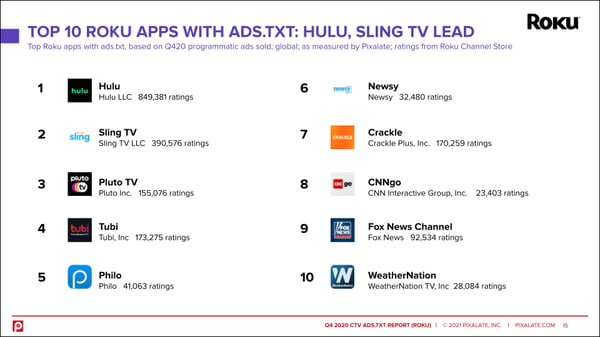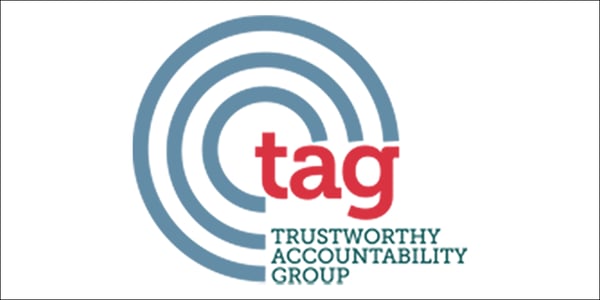This week's review of ad fraud and quality in the digital advertising space.
1: Top 10 Roku apps with app-ads.txt in Q4 2020

This Pixalate blog details the top 10 Roku apps* that have app-ads.txt files, as of the end of Q4 2020 ("Top apps” are based on the number of programmatic ads sold, net of invalid traffic (IVT), as measured by Pixalate. Learn more in Pixalate's Connected TV App-Ads.txt Reports for Roku Apps.
2: Google says 'no' to new tracking

In a blog post, "Google on Wednesday clarified its plans for targeted advertising, promising not to use other ways to 'track' users around the internet after it ends support for cookies in Chrome by early 2022," reported CNBC.
3. What Google's announcement means for ad tech's plans

Adweek reports that Google's announcement is a "body blow to the independent ad-tech sector’s proposed approach to audience targeting which has primarily centered on using hashed email addresses as a substitute for the cookie."
4. TAG introduces anti-fraud, brand safety certifications in China











